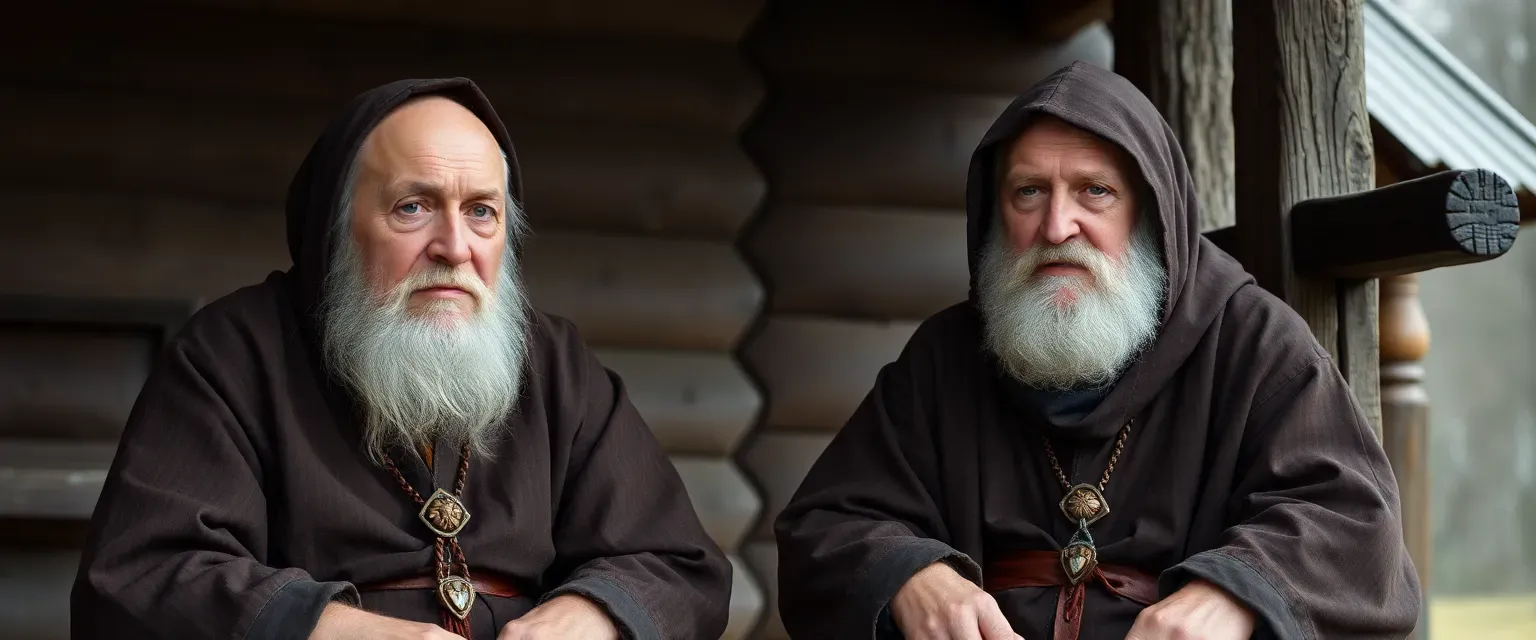In the heart of a quaint, pagan Slavic village, two old men, inseparable as the roots of ancient trees, spend their days on a creaky wooden porch. Mirko, the blind one, with his eyes clouded like the stormy skies of yesteryears, leans on his cane, a relic from times when the world was kinder. His companion, Dragan, hard of hearing, sits beside him, his ears struggling to catch the whispers of the wind. Both are draped in worn, earthy-colored cloaks, their faces etched with the cynicism of countless winters.
Mirko, once a revered storyteller, now sees the world through the vivid tales he spins, his voice a raspy echo of the past. Dragan, with his booming voice that often startles the birds, complements Mirko's tales with his own grumbles about the changing times. They share a bond forged in the fires of their youth, now tempered by the quiet resignation of old age.
Their days are filled with sharp observations and biting commentary on the villagers' lives and the pagan rituals they disdain. Mirko's unique quirk is his habit of touching objects to 'see' them, his fingers tracing the contours of life with a tenderness that belies his gruff exterior. Dragan, on the other hand, has a peculiar way of tilting his head, as if trying to catch the faintest sounds, a silent testament to his struggle with the world's noises.
Together, they yearn for the days when the village was a simpler, more predictable place. Yet, they find solace in each other's company, their shared cynicism a shield against the encroaching modernity. They remain patient observers, their grumbles a constant backdrop to the village's life, a reminder of the old ways that once were.
As the seasons change, so do the old men, their stories becoming more intertwined with the village's lore. Their end is a quiet one, fading into the fabric of the village they've watched over for so long, leaving behind a legacy of resilience and the undying bond of friendship.
